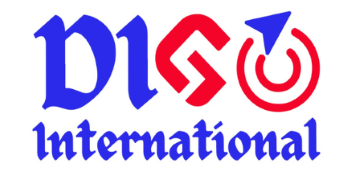Medical Education in Russia
Medical education world-wide varies per country. National healthcare systems set specific standards for those wishing to become a medical professional. In this section we want to shortly explain how the medical education system looks like in Russia and what it takes for one to become a doctor.
To enter medical university in Russia, Russian students must graduate high school and pass state exams. For international students the first criterion stays the same but instead of state exams applicants are offered to take university specific entrance exams.
At the first stage, medical universities in Russia offer two types of degrees, namely Bachelor and Specialist. Bachelor degrees are only few: Nursing Care and Social Work. The degree takes 4 years to study. After completing such education, student must take mandatory state accreditation, called Primary Accreditation. Then it is possible to start practise in the medical field as a nurse, a medical assistant or a paramedic.
Specialist degrees can be divided into two groups. Specialist degrees in Dentistry, Pharmacy or Psychology usually take at least 5 years to study before one can start working in this field. Specialist degrees in General Medicine and Pediatrics take 6 years of study. After the completion of such degree, students can start practising as a primary care physician or a pediatrician or choose to continue their study in Residency to receive specialization that will allow them working in narrow field. Residency length of study is 2 years. Primary Accreditation is necessary for all who complete Specialist degrees and Residency to enter the labour market.
For those interested in medical sciences, Specialist degree graduates can opt for postgraduate studies. Also, medical universities in Russia often offer several interdisciplinary specialist degrees that are more science and technology oriented. There are degrees in medical physics, biochemistry, pharmacology and genetics. At SibMed, there is Department of Biomedicine that is specializing in this field and trains highly qualified scientific personnel.
International Profile
Developing truly international profile is one of the SibMed’s strategic goals. For this reason, a systematic approach for training University community English language skills has been developed. Yearly, teaching staff is offered career development courses in English language.These measures allowed for developing our first English taught degree in General Medicine in 2015. Today, SibMed welcomes international students from 39 countries.Also, extensive language support such as Academic Writing courses, individual consultations for authors is offered for all SibMed scientists. Furthermore, for last five years number of publications in English language increased significantly and SibMed journal ‘Bulletin of Siberian Medicine’ was indexed in Scopus database. SibMed Research teams are actively seeking for international collaborations for their projects to further expand their professional network and research activities.
Highlights
- In 2015, together with Tomsk State University, Siberian State Medical University won the Erasmus + grant for the implementation of the project „Bridging Innovations, Health and Societies: Educational capacity building in the Eastern European Neighbouring Areas / BIHSENA“
- In 2016, an epidemiological study of the prevalence of Opisthorchis felineus invasion in the Tomsk Region was initiated in collaboration with the Swiss Institute of Tropical Medicine and Public Health (Switzerland)
- In 2017, a post-genomic study of the invasion of Opisthorchis felineus was launched in collaboration with the Medical Center of the University of Leiden (Netherlands)
- In 2017 (the project implementation period October 2017 – October 2020), Siberian State Medical University received funding from Erasmus and the European Union for the implementation of the educational project „Improving Healthcare Outcomes in Chronic Diseases – Enhancing the Curriculum at Masters Level / IHOD“
- In 2018, Erasmus + (Erasmus +, Key Action-1) grant was received for the implementation of the program of joint academic mobility with the Medical University of Plovdiv (Bulgaria)
- In 2019, SibMed innitiated the study named „The degree of influence of influenza on the network of social interactions of the population“ together with Complex Multilayer Networks Lab, Bruno Kessler Foundation (FBK) in Italy and the Computational and Digital Epidemiology research group from Institute for Scientific Exchange Foundation in Italy
- In 2019, Erasmus + (Erasmus +, Key Action-1) grant was received for the implementation of the program of joint academic mobility of scientists and faculty in cooperation with Leiden University (Netherlands)
.
SibMed Hospital provides full cycle medical care: emergency, outpatient, inpatient and high-tech.Annually, more than 100 thousand patients from 55 regions of Russia receive medical care at the Hospital. 10 times a month, University Hospital is on duty providing emergency medical care for Tomsk citizens.
The Hospital consists of several specialized clinics: In-patient Clinic, “Professor” multidisciplinary medical center, Neurology Clinic, Dental Clinic, Children’s Clinic, Ophthalmology Clinic, Assisted Reproductive Technology Center (ART Center), and diagnostic services.
The University Hospital has a special composition of staff, which means having academicians, professors, doctors, candidates of science, doctors of the highest rank and practicing students working together.
The Hospital is equipped with modern high-tech equipment provided by world manufacturers.
SibMed Hospital doctors conduct regular on-site consultations in Republic of Khakassia, Republic of Tyva and Altai Republic. Also, they pro
